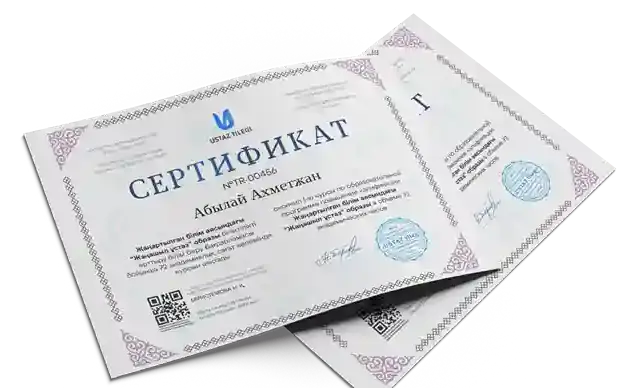|
Beginning
0-3
3-8
|
Organizational
moment
Teacher presents the lesson
objectives, explains students what they would be able to do by the
end of this lesson.
1. Warming-up.
Brainstorming
Learners tell each other
stories about their time in primary school
(P)
What was exciting to do at
school?
When were you bored at
school?
What and why were
you interested in?
|
|
|
Middle
8-15
15-25
25-35
|
2. Focus on
grammar
The Simple Present Tense is
used:
E.g I smoke (habit); I work in
Almaty (unchanging situation); Shymkent is a big city (general
truth).
-
Be careful! The simple present
is not used to express actions happening
now.
-
In the third person singular
the verb always ends in –s. He wants, she
needs, he gives
-
Negative and question forms
use DOES: Does he want ice
cream? He does
not want vanilla.
-
Verbs ending in
–y: the
third person changes the –y
to –ies: fly
---flies, cry ---cries. Exception: if there
is a vowel before the –y:
play-plays, pray-prays.
-
Add –es to verb ending in:
-ss,-x, -sh, -ch; he passes, she
catches,
he fixes, it pushes.
The Simple Past
Tense
The simple past tense,
sometimes called the preterite, is used to talk about a completed
action in a time before now. The simple past is the basic form of
past tense in English. The time of the action can be in the recent
past or the distant past and action duration is not
important.
E.g. He
lived in Aktau in 1985.
We went to America last
year.
-
You always use the simple past
when you say when something happened, so it is associated with
certain past time expressions.
-
Note: the word ago is a useful
way of expressing the distance into the past. It is placed after
the period of time: a week ago, three years ago, a minute
ago.
-
Be careful! The simple past in
English may look like a tense in your own language, but the meaning
may be different.
3. (FA) Focus on
writing
Ask
learners to write about their experiences in Primary school. Many
learners do not know Past forms of Irregular verbs, there is a
table of Irregular verbs in Handout (2).Print it in advance
to provide learners or you can also display in a smart board if
there is a chance to do it.
E.g: What were the worst things
there?
What were the best things
there?
What did they like in primary
school?
What was difficult?
Assessment criteria:
-writes at least 50-60 words
-uses Present and Past Tenses
correctly
-has a few spelling mistakes
4.
Practice
Ask learners to do some
practical exercises. Exercise are divided into levels, Level A for
strong learners, Level B for middle and Level C for low
ones.
Answers:
Level
A
1.Do you live with your
mother?
2. Where does Kate have
lunch?
3. When do you go to the
cinema?
4. Do you listen to the radio
in the morning?
5.Where do they play
football?
6.Does she study
French?
7.Does his brother work in the
center?
Level
B
1.Do 2. Do 3. Does 4. Do 5.
Does 6. Does 7. Does 8. Do 9. Does 10. Do
Level
C
1.go2. Read 3. Don’t 4. Live
5. Doesn’t 6. Stop
7.
Watches
|
Handout
1
www.britishcouncil.kz
www.ef.com
PPT Present
Simple
Or
video
https://www.youtube.com/watch?v=xLA58CSIf3M
www.ef.com
Past
Simple
Handout
2
http://esol.britishcouncil.org/content/learners/skills/writing/write-about-past-events-your-life
English file, Elementary Unit
1, WB p 7-8
Handout
2
|
|
Teacher helps weaker students
with some vocabulary and grammatical
issues.
Grammatical
exercises are divided into three levels as Level
A/B/C.
|
Monitoring learners writing,
evaluating their writing according to the following assessment
criteria.
writes at least 50-60 words
-uses Present and Past Tenses
correctly
-has a few spelling mistakes
|
-Chairs, wastebaskets,
electrical cords, and other articles should not be left where they
will become a tripping hazard.
-Desk drawers, cabinet doors
and file drawers should not be left open while unattended. Pull
only one drawer out at a time. Heavier items should be loaded in
the lower file drawers to prevent the file from tipping
over.
-Approved ladders or
other safe support should be used to reach materials on high
shelves, bulletin boards, or other high
elevations.
|











